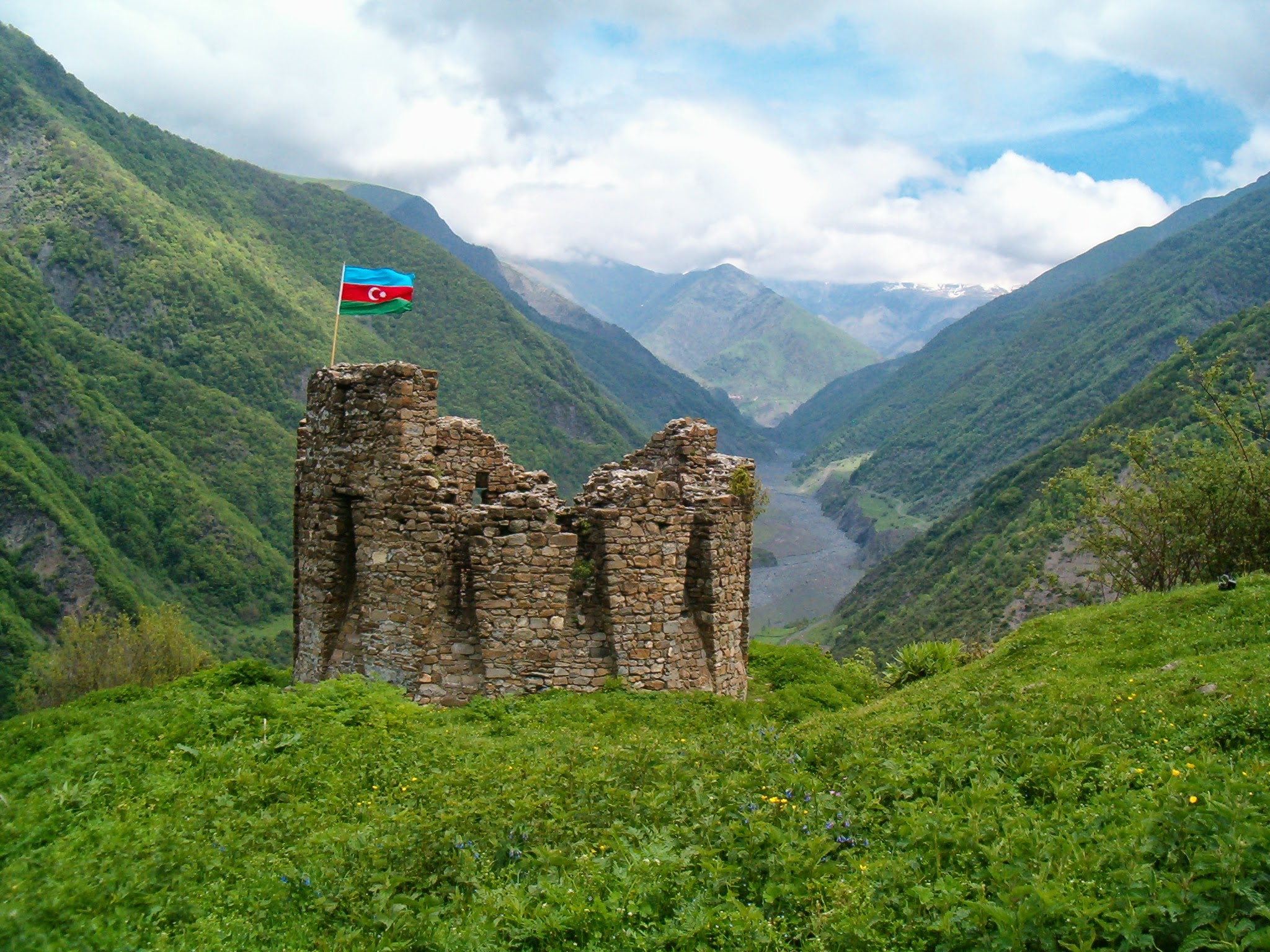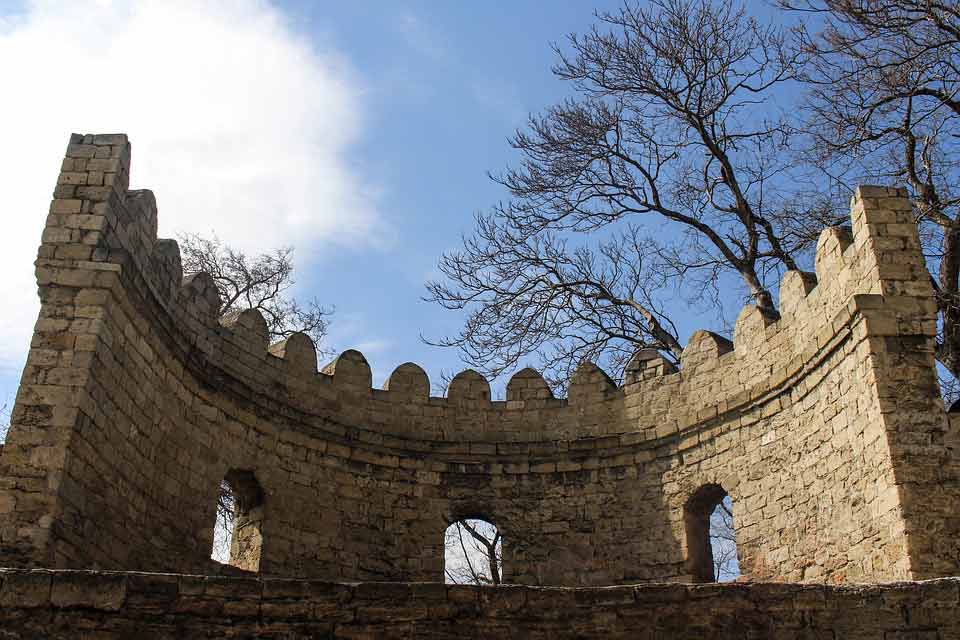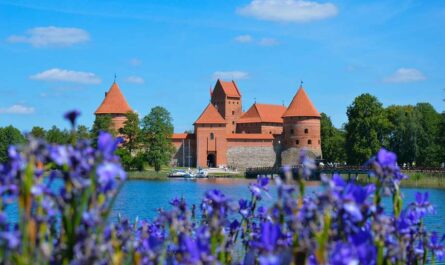Azerbaijan facts are interesting. Beyond its geographical boundaries, Azerbaijan boasts a vibrant cultural identity deeply rooted in its history and heritage. The Azerbaijani Republic, with its diverse population, reflects a mosaic of traditions, languages, and customs. The country’s cultural landscape is shaped by centuries of interactions with neighboring regions and civilizations, resulting in a unique blend of influences. Azerbaijani culture encompasses a rich tapestry of music, dance, literature, and cuisine, each contributing to the nation’s cultural tapestry. This article will feature many more interesting cool fun facts about Azerbaijan.
Interesting Azerbaijan facts
The cultural diversity within Azerbaijan is evident in its linguistic landscape, with Azerbaijani being the official language, but Russian and other minority languages also spoken in various regions. Traditional Azerbaijani music, with its distinct melodies and instruments such as the tar and kamancha, continues to be celebrated both locally and internationally. Azerbaijani cuisine, renowned for its rich flavors and use of local ingredients, offers a culinary journey that reflects the country’s cultural heritage. Let’s find below these Azerbaijan interesting facts!
1. Unraveling Azerbaijan’s Economic Landscape
Economically, Azerbaijan is a nation of dynamic growth and diversification, fueled by its abundant natural resources and strategic location. The country’s economy has undergone significant transformation since gaining independence, transitioning from a centrally planned system to a market-oriented one. Azerbaijan’s vast reserves of oil and natural gas have played a crucial role in driving economic development and attracting foreign investment.
In addition to its energy sector, Azerbaijan has diversified its economy to include sectors such as agriculture, manufacturing, and tourism. The government has implemented reforms aimed at improving the business environment and fostering entrepreneurship. Azerbaijan’s strategic location as a bridge between Europe and Asia positions it as a key player in regional trade and transportation networks.
2. Navigating Azerbaijan’s Political Landscape
Politically, Azerbaijan is a presidential republic with a multi-party system, though the ruling party has historically dominated the political scene. The country’s political landscape has been shaped by its post-Soviet transition to independence and its geopolitical position in a volatile region. Azerbaijan has faced challenges related to democratization, human rights, and regional conflicts, particularly with Armenia over the Nagorno-Karabakh region.
Despite these challenges, Azerbaijan has made strides in modernizing its political institutions and promoting stability. The government has prioritized economic development and infrastructure projects to enhance the country’s competitiveness on the global stage. As Azerbaijan continues to navigate its political landscape, it faces both internal and external pressures but remains committed to achieving progress and prosperity for its people.
3. Baku: Azerbaijan’s Capital City
Baku, the vibrant capital of Azerbaijan, stands proudly on the western bank of the Caspian Sea, nestled along the sweeping curve of the Bay of Baku. This bustling metropolis sprawls across the southern edge of the Abşeron Peninsula, showcasing a fusion of modernity and tradition. The city’s strategic maritime location has long been a cornerstone of its identity, facilitating trade and cultural exchange throughout the centuries. Baku’s skyline, punctuated by architectural marvels and high-rise buildings, serves as a testament to Azerbaijan’s aspirations for progress and development.
4. Yanar Da: The Eternal Flame of Azerbaijan
Azerbaijan, often referred to as the “Land of Fire,” boasts a natural wonder that epitomizes its fiery spirit – Yanar Da, the eternal flame. For over six decades, this mystical mountain has been ablaze, its flames dancing against the backdrop of Azerbaijan’s rugged terrain. While the origins of Azerbaijan’s name remain shrouded in mystery, Yanar Da serves as a tangible manifestation of the nation’s fiery legacy. Situated in the heart of “The Land of Fire,” Yanar Da stands as a symbol of resilience and endurance, captivating visitors with its awe-inspiring spectacle.
5. Symbolism in Azerbaijan’s National Flag
The flag of the Republic of Azerbaijan is a vibrant emblem steeped in symbolism and national pride. Comprising three broad stripes, each color carries its significance. The top stripe, a bold shade of blue, represents the Turkic heritage of Azerbaijan. Beneath it, a vivid red stripe symbolizes progress and determination, reflecting the nation’s journey towards prosperity. The bottom green stripe signifies the country’s rich natural landscape and agricultural heritage. At the center of the red stripe, flanked by pristine white, rests a crescent and an eight-pointed star, evoking the nation’s Islamic heritage and unity. Together, these elements form a visual representation of Azerbaijan’s history, culture, and aspirations for the future.
6. The Rich Tapestry of Azerbaijani Culture
Azerbaijani culture, encapsulated by the term “Azərbaycan mədəniyyəti,” is a vibrant mosaic shaped by centuries of interaction with Turkic, Iranic, and Caucasian civilizations. This diverse heritage has bestowed upon Azerbaijan a unique identity, evident in its cuisine, literature, folk art, and music. The cultural landscape of Azerbaijan reflects a harmonious blend of traditions, each contributing to the nation’s rich tapestry of heritage and expression.
7. Culinary Delights of Azerbaijan
Azerbaijani cuisine is a culinary journey filled with flavors and traditions passed down through generations. Some of the most beloved dishes include:
- Plov: A traditional rice and meat dish that epitomizes Azerbaijani comfort food.
- Shah Plov: A variation of plov featuring rice served with fried dough, adding a crispy texture to the dish.
- Dolma: Delicate grape leaves stuffed with a flavorful mixture of rice, herbs, and spices.
- Saj Ichi: A tantalizing Azerbaijani barbecue, showcasing the country’s mastery of grilling techniques.
- Piti: A hearty lamb and chickpea soup, perfect for warming the soul on chilly days.
- Buglama: A traditional lamb stew bursting with robust flavors and tender meat.
- Gutabs: Savory pies stuffed with either meat or vegetables, offering a delightful blend of textures and tastes.
These culinary delights not only satisfy the palate but also serve as a testament to Azerbaijan’s rich gastronomic heritage.
8. Historical Transformations: Azerbaijan in the Soviet Era
The early 20th century witnessed significant political upheaval in the Caucasus region, leading to the establishment of the Transcaucasian Socialist Federative Soviet Republic (TSFSR) by Azerbaijan, Armenia, and Georgia in 1922. However, this union was short-lived, and by 1936, the TSFSR was dissolved, paving the way for Azerbaijan to become a constituent republic of the Soviet Union known as the Azerbaijan SSR.
Amidst these political transformations, Azerbaijan faced the challenges of World War II when Nazi Germany invaded the Soviet Union. The war brought profound changes to Azerbaijan, shaping its economy, society, and political landscape. Despite the tumultuous events of this era, Azerbaijan’s resilience and determination endured, laying the foundation for its future as an independent nation.
9. Language and Identity: The Azeri Tongue
Azerbaijani, also known as Azeri, stands as a linguistic symbol of cultural identity and heritage for the Azerbaijani people. Belonging to the Turkic language family, specifically the Oghuz sub-branch, Azeri is predominantly spoken by the Azerbaijani populace. This language serves as a vital thread that binds the people of Azerbaijan together, fostering a sense of belonging and unity. Through its rich vocabulary and expressive nuances, Azeri encapsulates the essence of Azerbaijani culture, making it an integral part of the nation’s identity.
10. Religious Diversity in Azerbaijan
The demographic landscape of Azerbaijan is characterized by a rich tapestry of religious beliefs and practices. While Muslims constitute the majority of ethnic Azerbaijanis, the country is also home to a diverse array of religious communities. Non-Muslims, including Russians, Georgians, Armenians, and other national minorities, coexist alongside their Muslim counterparts. Additionally, the International Society of Krishna Consciousness and individuals who adhere to no particular faith contribute to the religious mosaic of Azerbaijan. Christians, primarily concentrated in urban centers such as Baku, add further diversity to the religious fabric of the nation.
11. Exploring the Etymology of “Azerbaijan”
The etymology of the term “Azerbaijan” offers a glimpse into the rich historical and cultural heritage of the region. According to ancient Persian sources, the term “Aturpatakan” referred to “a site where the sacred fire is kept.” Over time, this evolved into the Persian word “Azer,” signifying “fire.” The enduring fires that have illuminated Azerbaijan’s mountains for centuries likely inspired this association. Today, the Persian influence persists in the name “Azerbaijan,” serving as a reminder of the region’s ancient connection to fire worship and spiritual traditions.

12. Cultural Etiquette in Azerbaijan: Gestures and Mannerisms
In Azerbaijani culture, gestures hold significant meaning and can convey respect or disrespect. Unlike in the West, where making a circle with the fingers and thumb symbolizes that everything is well, in Azerbaijan, this gesture is considered disrespectful and insulting. Similarly, pointing with the index finger is discouraged as it can be seen as impolite. Instead, it is customary to use a broad motion with the entire hand to indicate a direction or gesture towards something.
13. Economic Landscape: Wealth of Natural Resources
Azerbaijan boasts abundant natural resources, particularly in the realm of energy, which play a crucial role in driving its economy. Oil and other energy exports form a substantial portion of the country’s economic output, contributing to its classification as an upper-middle-income nation with advanced economic development and high literacy rates. Moreover, Azerbaijan’s strategic location as a crossroads of commerce has facilitated its evolution into a hub for craft arts, further bolstering its economic prosperity and cultural significance.
14. Fashion and Social Norms in Baku
Baku, the cosmopolitan capital of Azerbaijan, serves as a melting pot of cultures and styles. Both native Azerbaijani women and international residents in Baku often opt for western-style attire, reflecting the city’s modern and progressive ambiance. However, certain social norms prevail, particularly concerning attire and public behavior. While shorts are becoming increasingly acceptable for males in Baku, especially during the summer months, wearing them outside of the capital may attract unwanted attention. Additionally, public displays of affection are generally frowned upon, particularly outside of Baku, reflecting the cultural norms and values of Azerbaijani society.
15. The Nagorno-Karabakh Conflict: A Source of Ongoing Tensions
Azerbaijan and Armenia have been embroiled in a longstanding conflict over the Nagorno-Karabakh region, which is internationally recognized as part of Azerbaijan but is predominantly governed by ethnic Armenians. This protracted dispute, which erupted into open conflict in 1988, has led to the displacement of hundreds of thousands of ethnic Azerbaijanis from their ancestral lands. Tensions remain high between the two nations, and even the mere mention of Armenia can evoke a sense of unease or frustration among Azerbaijanis, particularly those affected by the conflict.
16. Symbolism of Azerbaijan’s National Flag
The national flag of Azerbaijan is rich in symbolism, with each color representing different aspects of the nation’s identity and history. The brilliant blue hue signifies Azerbaijan’s Turkic heritage, reflecting its deep-rooted ties to Turkic civilizations. The bold red stripe symbolizes the country’s path to development and progress, showcasing its commitment to modernization and growth. Lastly, the vibrant green color represents Islam, the predominant religion in Azerbaijan, highlighting the nation’s cultural and religious heritage. The establishment of the official colors and dimensions of the flag on February 5, 1991, solidified its significance as a symbol of Azerbaijani unity and pride.
17. Etiquette of Gift-Giving in Azerbaijani Culture
In Azerbaijani culture, the act of giving and receiving gifts is imbued with tradition and etiquette. When presented with a gift, it is customary to politely decline it the first two times as a sign of humility and modesty. On the third offer, it is considered polite to accept the gift graciously, expressing gratitude and appreciation for the gesture. Similarly, when offering a gift to an Azerbaijani, expect them to decline initially before eventually accepting it. Throughout the exchange, maintaining a courteous demeanor, expressing heartfelt thanks, and emphasizing that the gift is not causing any inconvenience are essential aspects of Azerbaijani gift-giving etiquette.
18. Gender Dynamics and Etiquette in Azerbaijani Society
In Azerbaijani society, politeness extends beyond mere manners; it encompasses respect for gender equality and traditional values. Outsiders are expected to treat women with the same respect afforded to men, acknowledging their role and contribution in society. This respect is evident in everyday interactions, such as offering women priority in public transportation, where men are expected to rise and offer their seats. Additionally, when dining out or socializing, it is customary for men to cover the expenses if an Azerbaijani woman is invited. These customs reflect the importance placed on gender equality and hospitality in Azerbaijani culture.
19. Socioeconomic Indicators in Azerbaijan
Azerbaijan faces various socioeconomic challenges, including poverty and unemployment. In 2019, approximately 4.8 percent of the population lived below the national poverty level, highlighting the need for continued efforts to address economic disparities and improve living standards. Additionally, in 2020, the unemployment rate in Azerbaijan reached 6.3 percent, impacting a significant portion of the labor force. Furthermore, infant mortality remains a concern, with 20 out of every 1,000 children born in Azerbaijan not surviving past the age of five. These statistics underscore the importance of ongoing initiatives to enhance healthcare, education, and social welfare in the country.
20. Legal Requirements for Foreign Visitors in Azerbaijan
Foreigners visiting Azerbaijan are subject to certain legal requirements aimed at ensuring public safety and security. One such requirement is the obligation to carry passports at all times, as tourists may be stopped periodically by police for identity checks. Failure to present proper documentation may result in fines or other penalties. While a photocopy of the passport is generally sufficient, it is advisable to confirm the specific requirements and regulations beforehand to avoid any inconvenience or potential legal issues during the visit.
21. Safety Considerations for Visitors to Azerbaijan
While Azerbaijan is generally considered a safe destination for travelers, it is essential to remain vigilant and cautious, particularly regarding petty and violent crime. In Baku, the capital city, as in many urban centers worldwide, instances of petty crime may occur. However, in recent years, there have been reports of a rise in more serious criminal activities, some of which have affected foreigners. Visitors should exercise caution and take appropriate safety precautions to mitigate any potential risks during their stay. Motivation – Mind – Success – Thinking – Productivity – Happiness
22. Baku: A City with a Storied Past and Promising Future
Baku’s nickname as the “Black City” harks back to its historical significance as a major oil-producing hub, responsible for half of the world’s oil production at one time. Today, Baku is undergoing a transformation, evolving from its industrial past into a potential tourism hotspot. The city’s rich cultural heritage, modern infrastructure, and strategic location on the Caspian Sea make it an attractive destination for travelers. In the near future, Baku is poised to welcome thousands of tourists as it hosts prestigious events like the European Song Contest finals, further solidifying its position on the global tourism map.
23. Quality of Life in Azerbaijan
Azerbaijan offers a high quality of life for residents and expatriates alike, characterized by safety, affordability, and access to organic goods. The country’s safety record, coupled with its relatively low cost of living, makes it an appealing destination for those seeking a comfortable lifestyle. Additionally, Azerbaijan’s diverse climate zones support the cultivation of a wide range of fruits and vegetables, providing residents with access to fresh, organic produce year-round. Furthermore, the hospitable and welcoming nature of the Azerbaijani people, particularly towards foreigners, enhances the overall experience of living and working in this remarkable country.
Hopefully, you have enjoyed these interesting cool Azerbaijan facts.
More Interesting Facts and Articles
- 60 Interesting Facts about Kathmandu City Nepal
- 30 Interesting Facts About the Flag Of Scotland
- 15 Interesting Fun Facts – Everland Theme Park, South Korea
- 75 Awesome Washington DC USA Interesting Fun Facts
- 70 Archipelago Ibiza Spain Interesting Fun Facts Trivia
- 33 Gyeongbokgung Palace South Korea Interesting Fun Facts
- 29 Andaman and Nicobar Islands Interesting Fun Facts
- 40 Irish Saint Patrick’s Day Interesting Fun Facts
- 25 Interesting Fun Facts About Nami Island South Korea
- 89 Wonders of the World One Must See in Lifetime
- Cultural Wonders of the World – A Complete List
- 22 Pashupatinath Temple Nepal Interesting Fun Facts
- List of 54 Greatest Empires in Entire History Timeline
- 100 United Nations Facts – The UN Basic Facts for All
- 100 Plateau of Tibet Facts to Astonish You
- 200 Kazakhstan Fun Facts Everyone Should Know
- 125 Interesting Facts about Hungary You Must Enjoy
- 200 Interesting Facts about Poland for Travelers
- 200 Cool Facts about Germany to Surprise You



